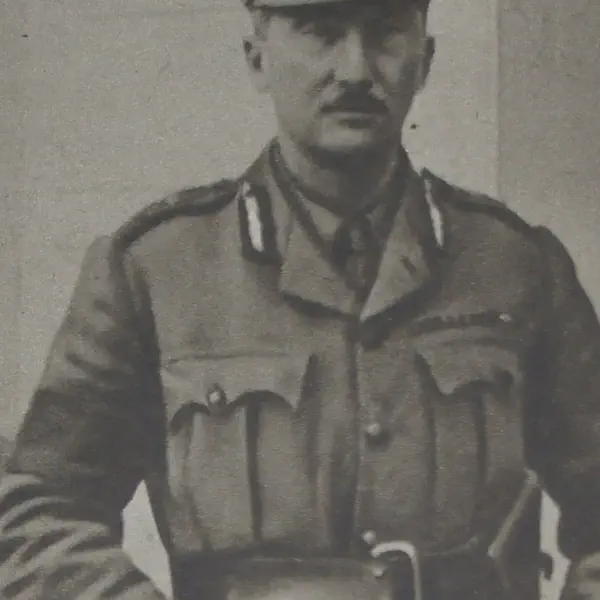
Sir Hubert Gough, Soldier and Participant in Curragh Mutiny of 1914, Is Born in Gurteen, Co. Waterford
August 12, 1870
Sir Hubert Gough, a distinguished British Army officer known for his role in the Curragh Mutiny of 1914 and his service during World War I, was born on August 12, 1870, in Gurteen, County Waterford, Ireland.
Early Life and Military Career
Birth and Background: Hubert de la Poer Gough was born into an Anglo-Irish family with a strong military tradition. His father, Sir Charles John Stanley Gough, was a decorated soldier who had served with distinction in the British Army, and his uncle, Hugh Gough, was also a prominent military figure. Growing up in this environment, Hubert Gough was destined for a military career.
Education and Early Military Service: Gough was educated at Eton College and the Royal Military Academy Sandhurst. He was commissioned into the British Army in 1889, joining the 16th (The Queen’s) Lancers. Gough saw action in several colonial campaigns, including the Second Boer War (1899-1902), where he earned a reputation as a capable and courageous officer.
The Curragh Mutiny (1914)
Background to the Mutiny: The Curragh Mutiny, also known as the Curragh Incident, took place in March 1914, in the context of the Home Rule Crisis in Ireland. The British government, led by Prime Minister H. H. Asquith, was preparing to introduce Home Rule for Ireland, which would grant Ireland its own parliament. This move was fiercely opposed by the Ulster Unionists, who were determined to resist Home Rule, potentially by force.
Role in the Mutiny: As the commander of the 3rd Cavalry Brigade stationed at the Curragh Camp in County Kildare, Gough was informed that his troops might be ordered to march against the Ulster Volunteers, who were organizing in opposition to Home Rule. Gough, along with other officers, made it clear that they would rather resign than take up arms against the Unionists. The British government, fearing a mutiny and a potential civil war, backed down and assured Gough and his officers that they would not be required to enforce Home Rule in Ulster by force.
Aftermath: The Curragh Mutiny was a significant event, highlighting the deep divisions within the British Army and the country as a whole over the issue of Irish Home Rule. Gough’s actions were controversial, but they were also indicative of the complex loyalties and pressures faced by the military at the time.
World War I
Service in the Great War: During World War I, Gough served with distinction, rising to the rank of general. He commanded the I Corps during the Battle of the Somme and later the Fifth Army during the German Spring Offensive of 1918. Despite being forced to retreat during the Spring Offensive, Gough’s leadership was crucial in delaying the German advance and preventing a total collapse of the British lines.
Post-War Career: After the war, Gough continued to serve in the British Army, though his career was overshadowed by the controversies of the Curragh Mutiny and the retreat during the Spring Offensive. He retired from the army in 1922.
Later Life and Legacy
Later Years: After retiring from military service, Gough wrote several books, including his memoirs, “Soldiering On” (1954). He lived a quiet life in England, where he remained active in veterans’ organizations and public life.
Death: Sir Hubert Gough passed away on March 18, 1963, at the age of 92.
Legacy: Gough’s legacy is a complex one. He is remembered as a brave and capable soldier who served with distinction during some of the most challenging periods of British military history. However, his role in the Curragh Mutiny and the controversies surrounding his World War I command have also marked his career. Despite these challenges, Gough remains a significant figure in the history of the British Army and in the story of Ireland’s struggle for independence.
Sir Hubert Gough’s birth in Gurteen, County Waterford, marked the beginning of a life dedicated to military service, during which he played key roles in some of the most significant events of early 20th-century British and Irish history.